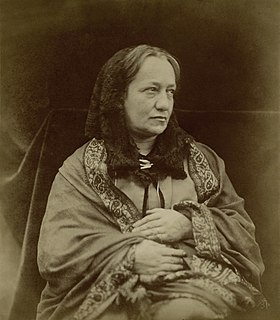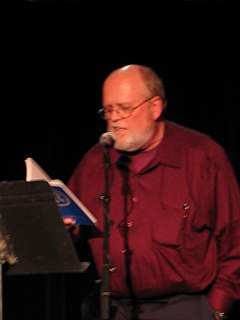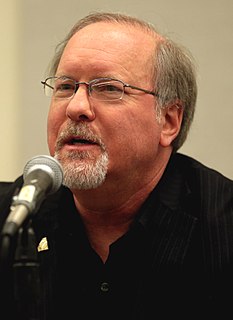A Quote by Lois Lowry
Even trained for years as they all had been in precision of language, what words could you use which would give another the experience of sunshine?
Related Quotes
It has not been definitively proved that the language of words is the best possible language. And it seems that on the stage, which is above all a space to fill and a place where something happens, the language of words may have to give way before a language of signs whose objective aspect is the one that has the most immediate impact upon us.
There is something false in this search for a purely feminine writing style. Language, such as it is, is inherited from a masculine society, and it contains many male prejudices. We must rid language of all that. Still, a language is not something created artificially; the proletariat can't use a different language from the bourgeoisie, even if they use it differently, even if from time to time they invent something, technical words or even a kind of worker's slang, which can be very beautiful and very rich. Women can do that as well, enrich their language, clean it up.
Being a slow reader would normally be a deficiency; I found a way to make it an asset. I began to sound words and see all those qualities - in a way it made words more precious to me. Since so much of what happens in the world between human beings has to do with the inconsideration of language, with the imprecision of language, with language leaving our mouths unmediated, one thing which was sensuous and visceral led to, in the use of language, a moral gesture. It was about trying to use language to both exemplify and articulate what good is.
So is not mathematical analysis then not just a vain game of the mind? To the physicist it can only give a convenient language; but isn't that a mediocre service, which after all we could have done without; and, it is not even to be feared that this artificial language be a veil, interposed between reality and the physicist's eye? Far from that, without this language most of the initimate analogies of things would forever have remained unknown to us; and we would never have had knowledge of the internal harmony of the world, which is, as we shall see, the only true objective reality.
For being able to use language was a critical skill that could carry one far. One could use it professionally, as a crafter of everything from political speeches to modern novels. One could use it personally, as a tool of discovery or a means of staying connected to others. One could use it as an outlet that would feed the artistic spirit of the creator, which existed in everyone.
I wish I could take language And fold it like cool, moist rags. I would lay words on your forehead. I would wrap words on your wrists. 'There, there,' my words would say - Or something better. I would ask them to murmur, 'Hush' and 'Shh, shhh, it's all right.' I would ask them to hold you all night. I wish I could take language And daub and soothe and cool Where fever blisters and burns, Where fever turns yourself against you. I wish I could take language And heal the words that were the wounds You have no names for.
The one and only substitute for experience which we have not ourselves had is art, literature. We have been given a miraculous faculty: Despite the differences of language, customs and social structure we are able to communicate life experience from one whole nation to another, to communicate a difficult national experience many decades long which the second of the two has never experienced.
When Galileo discovered he could use the tools of mathematics and mechanics to understand the motion of celestial bodies, he felt, in the words of one imminent researcher, that he had learned the language in which God recreated the universe. Today we are learning the language in which God created life. We are gaining ever more awe for the complexity, the beauty, the wonder of God's most devine and sacred gift.
I hoped that Grace would be a little bit of the best of all of us: Scarlett's spirit, and my mother's strength, Marion's determination, and Michael's sly humor. I wasn't sure what I could give, not just yet. But I would know when I told her about the comet, years from now, I would know. And I would lean close to her ear, saying the words no one else could hear, explaining it all. The language of solace and comets, and the girls we all become, in the end.
That is a horrible thing in a way, but it is the one thing poets can bring back to experience, this intense focus on language, which activates words as a portal back into experience. It's a mysterious process that's very hard to articulate, because it's focused entirely on the material of language in a way, but in the interests not just of language itself whatever that would mean - that's the mistake, by the way, that so many so-called "experimental" poets make - but in service to human experience.
What's happening is the language. Not only in the usual sense of being interesting (which it is), but in the new sense that words are events, as real and important in themselves as wars and lovers... It is to the word, then, that the mind moves, and the word responds by taking on a physicality, even a sensuality, we have all been trained to ignore. Words have weight, and the distance between two can be a chasm filled with forces of association... What Clark is doing is genuinely new.
when Christian theology becomes traditionalism and men fail to hold and use it as they do a living language, it becomes an obstacle, not a help to religious conviction. To the greatest of the early Fathers and the great scholastics theology was a language which, like all language, had a grammar and a vocabulary from the past, but which they used to express all the knowledge and experience of their own time as well.
Looking at the data and at my drug use and evaluating it carefully just let me see that I wasn't special, but my drug use challenged what I thought about cocaine. Because I would accept when I would say, "What happened to that person?" and someone would say, "They started using cocaine...they went downhill..." I would just accept that, even though I had a different experience and all these other people had a different experience. But I would throw that out because I thought my experience was an aberration.
If you had come to me a hundred years ago, do you think I should have dreamed of the telephone? Why, even now I cannot understand it! I use it every day, I transact half my correspondence by means of it, but I don’t understand it. Thnk of that little stretched disk of iron at the end of a wire repeating in your ear not only sounds, but words-not only words, but all the most delicate and elusive inflections and nuances of tone which separate one human voice from another! Is not that something of a miracle?






































